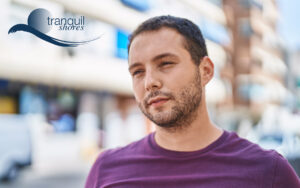Supporting Your Journey Toward Recovery this Summer
Many of us know that there are higher addiction relapse rates during the winter holiday season. However, they also spike during the summer months. Fortunately, there are plenty of things you can do to support your journey toward recovery and wellness. Here’s what you should know.
See a Mental Health Specialist
Many people struggling with substance abuse and addiction issues have a co-occurring mental health disorder. A common issue is seasonal affective disorder (SAD)—a form of depression where seasonal changes bring on symptoms. While in most instances, SAD symptoms peak during the winter from a lack of sunlight, some people experience the opposite effect. In these cases, people’s depression symptoms peak during the summer.
Other common mental health disorders that accompany addiction include but are not limited to:
- Depression
- Anxiety
- Post-traumatic stress disorder (PTSD)
- Bipolar disorder
- Borderline personality disorder (BPD)
- Obsessive-compulsive disorder (OCD)
- Schizophrenia
- Attention-deficit-hyperactivity disorder (ADHD)
In many cases, these negative thoughts and emotions lead the affected person to turn to drugs and alcohol as a way to self-medicate. If you feel as though your mental health is suffering and may cause a relapse, reach out to a mental health professional to determine how you can work mental health treatment into your addiction treatment.
Find New Hobbies & Activities
Having too much idle time is another common culprit when it comes to relapse triggers. Because the summertime tends to have less structure than the rest of the year, many people find themselves bored and susceptible to turning to substance abuse for entertainment.
Filling your free time is an excellent way to prevent boredom from striking this summer. Some summer activities and hobbies to try include:
- Camping
- Painting
- Surfing
- Gardening
- Hiking
- Pottery
- Dance
- Swimming
- Singing
- Running
- Woodworking
- Fishing
- Photography
Attend Social Events Sparingly
With the summertime in full swing, that means there are plenty of day parties, barbecues, and other social events and activities going on. However, that doesn’t mean you have to attend every single one you’re invited to.
When you’re in recovery, being in environments where drugs and alcohol are present can jeopardize your sobriety. Some common causes for relapsing in social settings include:
- Feeling left out.
- Being pressured by others to use.
- Overconfidence in your sobriety.
- Avoiding uncomfortable conversations.
To help you determine which events are worth skipping or attending, keep these questions in mind:
- Will people be drinking/doing drugs?
- Will I be with people who respect my decision to be sober?
- Do I have an exit strategy if I feel uncomfortable?
- Will I feel like I’m missing out on the fun by remaining sober?
Be Patient and Kind to Yourself
If you do end up relapsing during the summer, try to be patient with yourself. Tale some time to acknowledge how far you’ve come and remember that this is a common experience during the recovery process—about half of people seeking professional treatment for addiction issues relapse at some point.
Take this as an opportunity to learn more about yourself and what your triggers are to help you to cope with them more effectively in the future. You can always choose to continue your journey toward a sober lifestyle.
Seeking Help at Tranquil Shores
Whether you’re recovering from alcohol or drug addiction, Tranquil Shores can help you every step of the way toward wellness and recovery. Our experienced clinical team of addiction experts is dedicated to providing unique and personalized therapy to those looking for help with substance use disorders in Florida.
Please call us at (727) 391-7001 or get in touch with us online to take the first step on the road to recovery today







